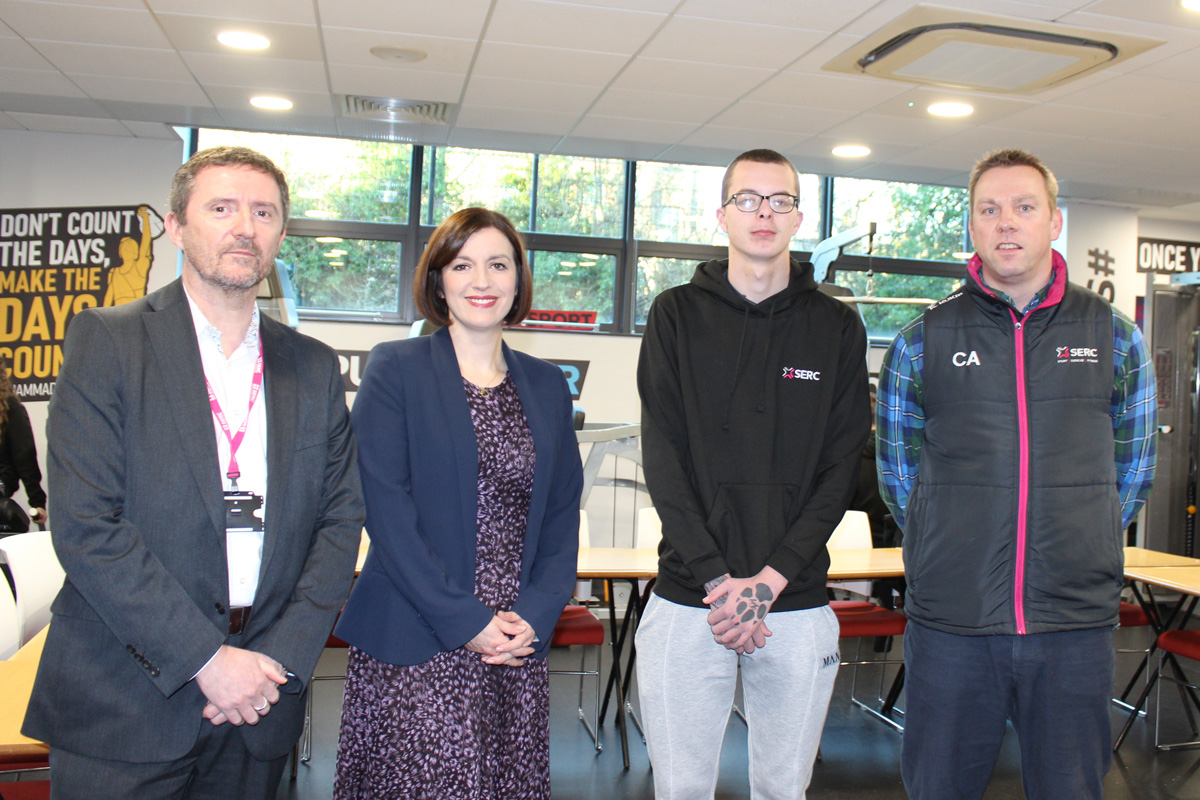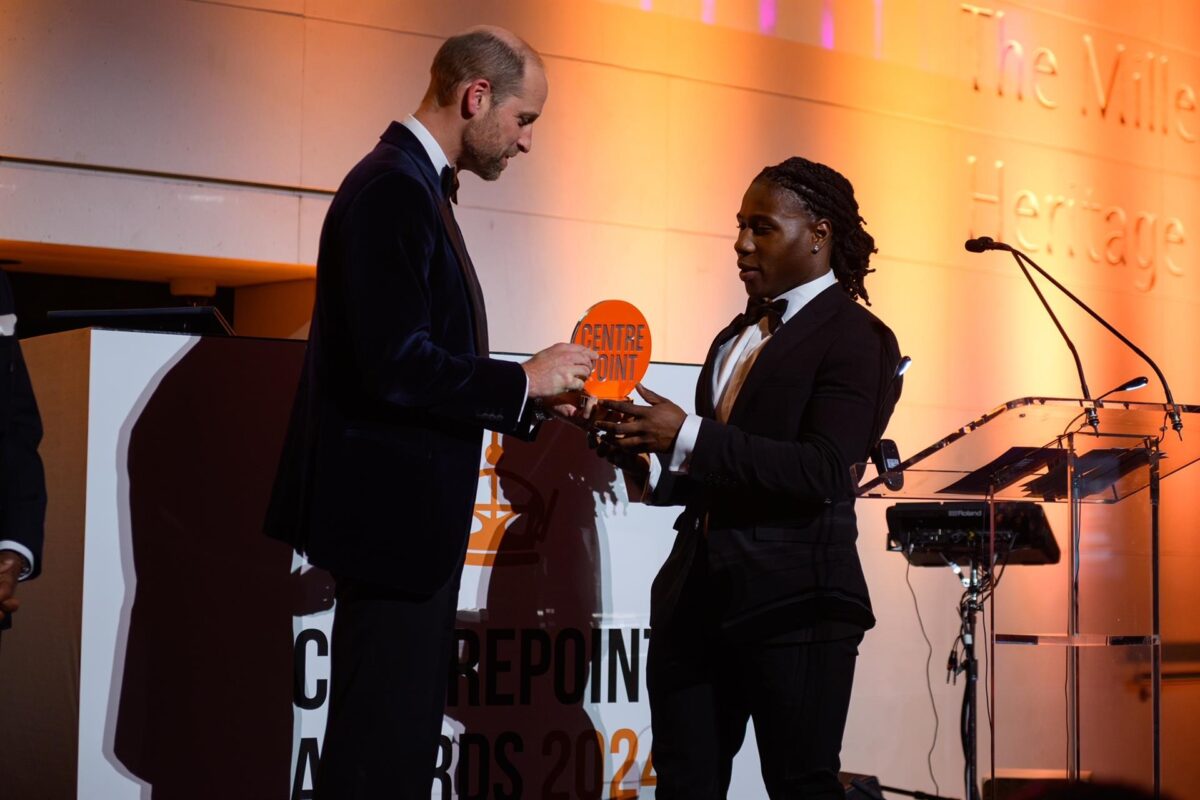International Women’s Day – Sector Response

#InternationalWomensDay is celebrated on 8 March every year around the world. It is a focal point in the movement for women’s rights. This year’s theme is #BreakTheBias: Together we can break the bias in our communities, workplaces, schools, colleges and universities!
International Women’s Day was created as a rallying cry for everyone to do more in accelerating women’s equality. It has always been critical, but more so at a time when decades of gender equality efforts are being threatened by the Covid-19 pandemic. Women have been more impacted socially, economically, and career-wise compared to men during the pandemic. Over a quarter (26%) of women reported a loss of work compared to 20% of men in September 2021. The impact of this needs to be mitigated now, so that long-term career scarring doesn’t happen for swathes of women and girls.
Sector Response
Krista Griggs, Head of Financial Services and Insurance at Fujitsu UK
“Although the financial services and insurance sector has made steps in relation to female representation, the industries are still dominated by white male leaders. This is shown in the small 5% increase of female C-suite executives in corporate business environments between 2016 and 2021. It’s why days like today are important to celebrate those bucking the trend, such as Alison Rose at NatWest and Anne Boden at Starling, who are not only leading some of the world’s most successful businesses, but also bringing different perspectives and reframing stereotypes. However, although their leadership is to be admired, unfortunately, it’s often described as ‘firsts’ or ‘only’s’. Continuing to raise their profiles – but also women across the entire business – is essential in changing how we see women in the workforce and the industries as a whole.
“Undoubtedly, more needs to be done to attract women into the financial services sector. The benefits of a balanced workforce, therefore, need to be highlighted to overturn current norms. For example, diversity in the workforce allows banks and insurers to be much more aware of the needs of their customers, which will then play into the trend we’re seeing regarding business expectations of offering personalised services. Similarly, we’re experiencing disruption through technical innovations as new skills are in short supply, and to combat the gap, companies will benefit from pulling from a wider demographic of talent in the recruitment process. For businesses that have diversification in teams, they see a direct positive impact on profits. For us, we’re seeing consistent higher engagement scores, which shows that creating a working culture that is better for women, is for the betterment of everyone.
“Looking forward, to ensure financial services and insurance is no longer framed from the ‘typical male perspective’, it’s important to be aware of any biases that may be present in the workplace and for those in the sectors to challenge daily decisions. Only when traditional outlooks are overturned will it assure future generations of females that they’re on track for a long and rewarding career – and that’s true regardless of industry or location.”
Lisa Occleshaw, Sales Director UKI at Ping Identity
“International Women’s Day is a reminder of the work that still needs to be done to #breakthebias; the tech industry, in particular, remains heavily male-dominated with only 16% female representation in the UK. Companies need to invest in not only hiring but training and retaining female talent. What’s more, it’s vital that technology companies complete an internal audit and uncover areas where they can improve gender equality and introduce specific initiatives that encourage younger female professionals to enter cybersecurity.
“At Ping Identity, we recognise both the benefits and importance of promoting a diverse workplace and have made sure our recruitment process in Europe reflects these values. Our ‘Ping4Good’ programme focuses on girls in STEM and provides them with the tools to help them succeed in their careers. However, while we recognise our steps internally towards creating an equitable workforce are crucial, we are also aware of the hurdles that must be overcome in the workplace and wider industry.
“We must all advocate transparent conversations that help close the gender pay gap for good, get rid of any stereotypes that exist and support young female talent to become future role models. We should celebrate the successes of those in the cybersecurity industry and hold those who stop the progress of equality accountable.”
Helen Walker, Managing Director, Technology, RM plc
“Diversity – diverse experiences, viewpoints and opinions – enable better decision-making when it comes to education policy, practice and improving learner outcomes for all.
“It allows businesses like RM plc to remain relevant to – and competitive with – the talent market, as well as providing a great opportunity for growth ourselves.
“Diversity in education technology, however, requires a targeted, bottom-up approach.
“The UK government has previously noted that boys are traditionally more likely to choose STEM subjects and to move on to studying STEM degrees at university. If we want more women taking up careers in STEM, then schools, governments and industry need to showcase the benefits of edtech careers to all students.
“Hosting workshops on awareness days like International Women’s Day is one way, but ultimately, continuous measures need to be in place. This includes having female role models from a STEM background visiting our schools to discuss how rewarding their careers are, and most importantly, squashing any bias that ‘STEM roles are only for men’.
“If young people are to be encouraged to make the best career choices, then parents, teachers, industry and government must break down the barriers that are holding young women back from experiencing the incredibly rewarding careers in STEM. Clearly this goes beyond gender. It must reach all realms of diversity.”
Sarah Friswell, CEO at Red Ant:
“On International Women’s Day, the biggest lesson we can all learn is to treat people universally, as humans, to break down the bias and the barriers that exist for women in tech and in wider society. People are motivated to work within teams and companies that think this way, and organisations are choosing to work with other organisations that think this way. Stamping out bias doesn’t just matter; it’s already happening.
At school level, there is so much that can be done to motivate young people about the opportunities in technology – to show that tech doesn’t have a stereotype. Technology organisations have a responsibility to initiate programmes with schools to show young people that opportunities are limitless; that school subjects are not gender-defined, that sectors are not gender-defined.
We must unlock the potential for young people, irrespective of gender, to develop careers that suit their real skills and interests without being held back by a poorly founded perception of the industry or inability to access it. What schools are missing is making the connection to that next stage, by giving young people early inspiration as to the business context for school subjects. That studying chemistry doesn’t mean you’ll be a chemist, and computer science doesn’t mean you’ll become a computer scientist. This can happen even from primary school age. There are hundreds if not thousands of roles and careers that can come out of studying a single STEM subject.
The working world of technology is not simply coding, networking or security. Business development, marketing, client management – the largest enterprises are nothing without these skills, and the smaller ones even more so.
No business role should be defined by gender. Our young people are the talent of the future, and organisations will need to work at creating and refining a diverse culture and offer more flexible ways to accommodate workers with particular lifestyle needs. Seeing and treating their biggest assets as humans first and foremost will build the best teams. “
Melis Abacioglu, founder of Wellbees
“My name is Melis Abacioglu, founder of Wellbees, a one-stop-shop employee wellbeing platform. I talked to 265 investors in total in my last round that resulted in all no’s. I thought I was the problem.
“When I went back and tried to get some feedback I realized almost all of the people I was talking to were men. A small research showed that only 2,2% of the world’s VC money was going to female-founded startups and ours was not only female-founded but also female-led with 72% of company identifying themselves as female.
“Instead of outside funding I decided to focus on our clients to create an impact for them- one thing I know best! Fast forward 18 months, we bootstrapped our way onto serving 40+ corporate clients, in 14 countries, in seven languages.
“Now we are about to close our $2,2m round with all institutional investors. Knowing your numbers and thus, the fact that why you might not be succeeding might not be your fault is half of the solution. #breakthebias “
Anila Siraj, Managing Director, Alternative Fuels Strategy at Kalibrate
“In my role, I have had to work harder to find ways in which I can prove myself to achieve the same success and respect as a man in the same field. But it’s all been worth it if I can be a part of removing the stereotype and make life easier for the next generation of women in tech. We must all celebrate how far we’ve come in creating an equal world. It is also a day in which we continue to campaign for equal rights – in both society and the workplace – whilst breaking the ever-present gender biases that have existed for centuries.
“Women have tirelessly worked to change this in predominantly male workplaces, however, there is still a way to go. As it stands, gender bias is more prevalent in industries such as tech and data and women are still far from being on equal footing both in terms of position and wage. In fact,only 30% of data roles in the UK are held by women today as they encounter a multitude of challenges. While intentional bias is a harder nut to crack, unintentional bias can be changed. The first and most crucial step in breaking this bias is acknowledging it and understanding how it may manifest itself.
“Thankfully, there are several initiatives and movements in place to evolve how women are depicted in the tech industry, such as the availability of STEM based equal learning. These are paving the way for a new generation of tech focused women. Taking this further means that many more CEO’s need to be having important conversations about bias, a lack of diversity and equity. Just having a woman on the board or in a senior position is simply not enough. Supporting women in breaking this bias is crucial for them to thrive and flourish in the workplace and wider society. What is needed is positive reinforcement and more inclusive conversations around diversity to help raise awareness – else gender bias will always remain.”
Adriana Carpenter, CFO, Emburse, said:
“It’s a good time to reflect upon and celebrate the progress women have made in making their voices heard in the workplace, but of course there is still much work to be done, especially in certain industries where the gender and diversity imbalance remains at unacceptable levels. When it comes to finance and crunching the numbers, my peers are mostly men, and I do think it will take a while for culture to shift to a point where there is true gender parity and an even split across the workforce. That being said, I’m positive that as more women break through the barriers and secure leadership roles, their influence will inspire even more young people to pursue their career interests.”











Responses